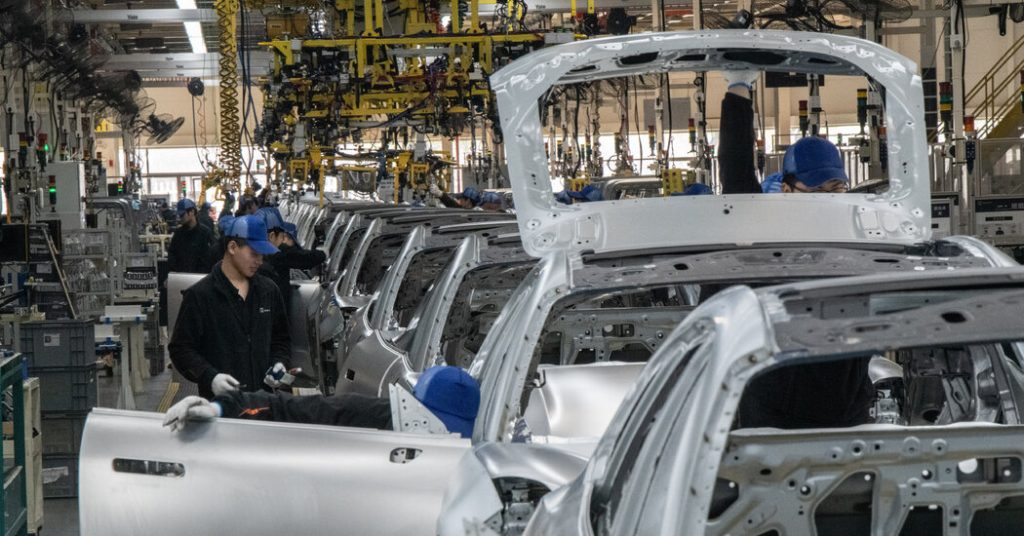President Biden announced a sharp increase in tariffs on Chinese imports, including electric vehicles and solar cells, to protect American industries from competitors subsidized by Beijing. He endorsed maintaining tariffs from the previous administration, focusing on strategic sectors like clean energy and semiconductors. Biden emphasized combining investments in America with targeted tariffs to support domestic manufacturing and exports. Labor leaders and some industry groups praised the decision, while the National Retail Federation criticized it as a tax on consumers.
The increased tariffs aim to protect American industries by targeting Chinese imports worth $18 billion annually, including electric vehicles, solar cells, semiconductors, and advanced batteries. Biden’s strategy involves using government investments in sectors like electric vehicles to create jobs and secure swing states. Treasury Secretary Janet Yellen justified the tariffs as necessary to address China’s excess industrial capacity and protect American workers from cheap imports. China responded by criticizing the decision and promising countermeasures.
Biden’s decision to increase tariffs in specific sectors reflects his administration’s focus on areas of strategic importance to the United States, such as clean energy and semiconductors. Some tariffs will double to address unfair trade practices and protect domestic industries, while others will affect industries in important swing states, including heavy metals. The move was praised by industries impacted by Chinese exports, such as the solar energy sector.
The timing and scope of the tariffs were influenced by the political calendar and the administration’s focus on key industries where the U.S. has invested heavily. The tariffs were seen as a response to China’s practices like forced technology transfers and intellectual property theft. Despite opposition to tariffs from economists, U.S. officials believe the targeted approach will not significantly impact prices. Biden’s decision to embrace tariffs reflects a recognition of Chinese trade practices that have negatively affected American workers, gaining support from labor leaders and some lawmakers.
The administration’s decision to increase tariffs on Chinese imports has drawn mixed reactions from different stakeholders. While some industries and labor leaders support the move to protect American jobs and domestic industries, others criticize it as a tax on consumers. Biden’s strategy aims to use tariffs strategically to support key sectors like clean energy, semiconductors, and manufacturing, in line with his administration’s focus on boosting domestic production and creating jobs. The decision reflects growing awareness of the impact of Chinese trade practices on American workers and communities.







